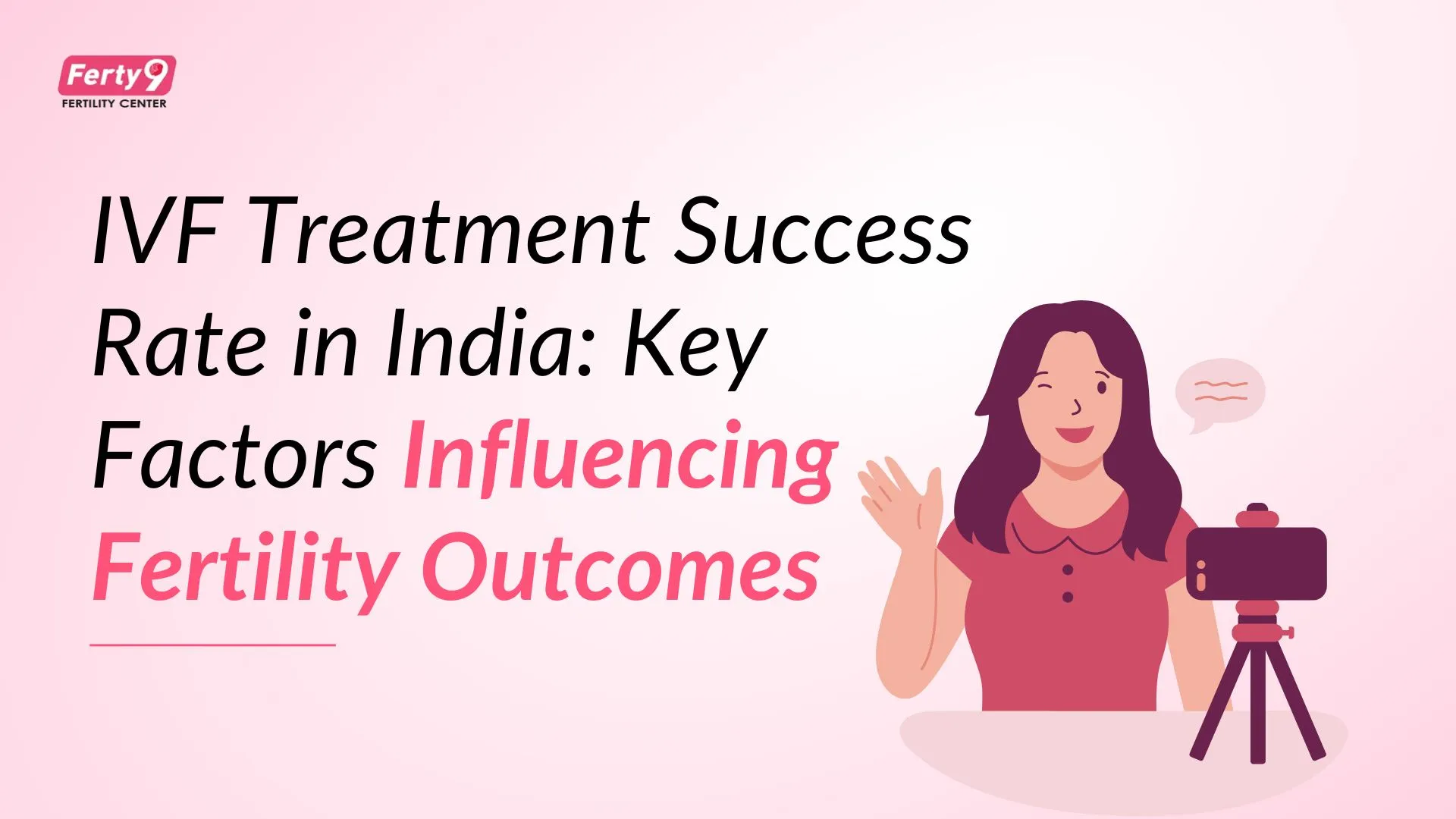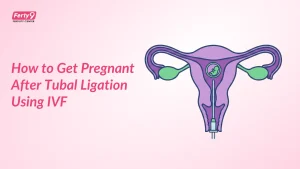IVF in India is predicted to expand because of improved affordability and advanced technologies. In Vitro Fertilization (IVF) is one of the Assisted Reproductive Technology (ART) procedure used to treat infertility due to certain conditions. It involves retrieving eggs from a woman’s ovaries, fertilizing them with sperm in a laboratory, and placing the embryo in the uterus when the endometrium is favourable. IVF is particularly beneficial for couples with infertility due to factors like bilateral tubal factor, male infertility, severe endometriosis, PCOS, and unexplained infertility. The IVF process timeline varies and typically takes four to six weeks.
Factors affecting IVF success rates
The guarantee of IVF success is impacted by multiple factors based on the personalized treatment plan which considers the age of female partner, quality of egg in female and sperm in male, underlying medical conditions and responses of the individual to the treatment. Our expert medical care and advancements during the IVF process optimise the chances of success rates.
Age of Female Partner
Age of woman is a primary among all the factors that may impact the success of IVF. A woman’s fertility naturally declines with age, primarily due to a decrease in both the number and quality of ovaries. Younger women typically produce more eggs, and these eggs are generally healthier with a higher chance of successful fertilization and embryo development.
Success rate under age 35: As the young women of age under 35 have good amount of egg reserves with highest egg quality, there are high success rates at this stage. However, there are several other factors such as medical conditions and success of embryo implantation that impact the success rate. For women under 35, cumulative live births are approximately 51.1% with respect to of IVF success rates.
What IVF Success Rates Really Mean During the Wait
The days leading up to your first ultrasound after IVF can feel like an emotional rollercoaster—full of hope, doubt, and constant overthinking. During this time, it helps to remember that success rates in IVF aren’t just statistics; they represent real possibilities shaped by science, timing, and your body’s response. At Ferty9, IVF success rates for women under 35 can reach as high as 60 to 70 percent, especially with personalized treatment plans and advanced protocols like elective single embryo transfer (eSET). Knowing that your journey is backed by strong clinical outcomes can offer some reassurance while you wait for that first reassuring heartbeat on the screen.
Success rate at age 35 to 37: Even though the egg reserves and quality of women decline at this age there will be chance of about 24.8% to conceive. The healthy condition and healthy lifestyles of the couple may also have more impact at this stage which provide a good support for improve success. Uterine health with fibrosis and endometrial issues being more prevalent particularly in women aged 30-45, can also impact the success rate of IVF.
Success rate over age 40: The quality of egg and the number are significantly very low in number. The women till age of 42 has a cumulative livebirth rate of 12.8% which indicates, there is a chance to conceive. The live birth rate is 3.9% in the women of age above 42. In this stage the required IVF cycle may increase for success and the impact of healthy lifestyle, medical conditions and clinical expertise also plays a major role to improve the success rates.
Genetic Abnormalities
The risk of genetic abnormalities in the eggs of women and also sperm of men increases by age. These abnormalities may lead to lower fertilization rates, poor embryo quality, failed implantation, and a higher risk of miscarriage.
Quality of egg, sperm and embryo:
Egg quality: Healthy and mature eggs have a higher chance of fertilizing correctly and developing into viable embryos. Factors influencing egg quality include age, ovary reserves lifestyle and overall health condition.
Sperm quality: Male partners contribute significantly to IVF success. Sperm quality that includes abnormal shape and movement and also the number of sperm available for fertilization impact the success rate. The concentrated semen sample with high quality of sperms improve the rate of successful fertilization. Advanced sperm selection techniques like Intracytoplasmic Sperm Injection (ICSI) can overcome some sperm-related issues.
Embryo quality: IVF success will be determined by the embryo’s development. Embryologists assess the rate of cell division and embryos of higher quality are more likely to implant and give birth.
Impact of Medical conditions for success of IVF:
Tubal Factor Infertility: Women with blocked or damaged fallopian tubes often have good IVF success rates because IVF bypasses the need for functioning tubes.
Endometriosis: The presence and severity of endometriosis can impact egg quality, ovary response, and embryo implantation, significantly lowering the success rates.
Polycystic Ovary Syndrome (PCOS): Women with PCOS can have variable IVF success depending on the individual. While they often produce a good number of eggs, egg quality can differ from person to person. Careful ovarian stimulation protocols are important to avoid complications and optimize success.
Uterine Factors: Conditions like uterine fibroids, polyps, or abnormalities in the uterine cavity can interfere with embryo implantation. Surgical correction before IVF may be necessary for successful pregnancy.
Male Infertility: As discussed under sperm quality, the severity and type of male infertility can influence fertilization rates and embryo quality. ICSI is often used in these cases.
Ovarian Dysfunction/Low Ovarian Reserve: Decline in the number of eggs or poor response to ovarian stimulation can reduce the chances of retrieving a sufficient number of good-quality eggs.
Steps in Process that may impact IVF success rate
- Number of IVF cycles: The number of IVF cycles a patient undergoes significantly impacts treatment success rates. The cumulative success rates and chances of pregnancy vary based on the age and outcome of the first cycle. Younger women may show benefits after several cycles, while older women often have low success rates. Factors such as sperm quality, health, and underlying conditions also affect the success of subsequent cycles, allowing clinics to customize treatment options for specific couples.
- Transferring embryos at the appropriate stage influences implantation rates. Blastocyst transfer is associated with higher success rates. Experienced clinicians perform gentle embryo transfer for successful implantation.
Other Factors that impact IVF success rate
- Smoking: Reduces egg and sperm quality, lowers IVF success rates, and increases miscarriage risk.
- Alcohol Consumption: Excessive alcohol intake can negatively impact fertility success rate.
- Weight: Maintaining a healthy BMI also impacts IVF success rate due to hormone balances.
- Diet and Nutrition: A balanced, nutrient-rich diet is beneficial for fertility success by IVF.
- Stress: High stress levels can negatively impact IVF outcomes.
Impact of Xiltrix alarm system on IVF success rate
- The system aims to prevent loss and damage to embryos through real-time monitoring of critical parameters in the incubators and cryo-storage.
- It has early warning system for maintaining optimal culture conditions and identifying potential issues early.
- It Improves air quality through VOC and particle monitoring, reduces human error and automated monitoring for 24/7 reliance
- It can be traceable for enhanced quality control and patient safety.
- The system also ensures equipment reliability, preventative maintenance, and enhanced air quality.
IVF Success Rates at Ferty9 Fertility Centre
At Ferty9, IVF success rates reflect a combination of advanced fertility technology, individualized care, and a highly experienced medical team. Success rates can range between 60% to 70% in younger women with optimal health and fertility profiles. Even in more complex cases, cumulative live birth rates reach up to 51.1% for women under 35, offering hope to couples struggling with infertility. These outcomes are made possible through evidence-based protocols, thorough evaluations, and personalized treatment plans tailored to each couple’s needs.
Conclusion:
IVF success is impacted by the woman’s age, with younger women producing more healthy eggs and having higher chances of successful fertilization and embryo development. Success rates of IVF under age 35 have high success rates due to good egg reserves and quality. Other factors like medical conditions and embryo implantation success also impact success rates. Uterine health of women is more prevalent in women aged 30-45. Over the age of 40, the quality of egg in women and sperm in men is low that which may decrease the chances of conception. Medical conditions like tubal factor infertility, endometriosis, PCOS, uterine factors, male infertility, and ovarian dysfunction also impact success rates.




























